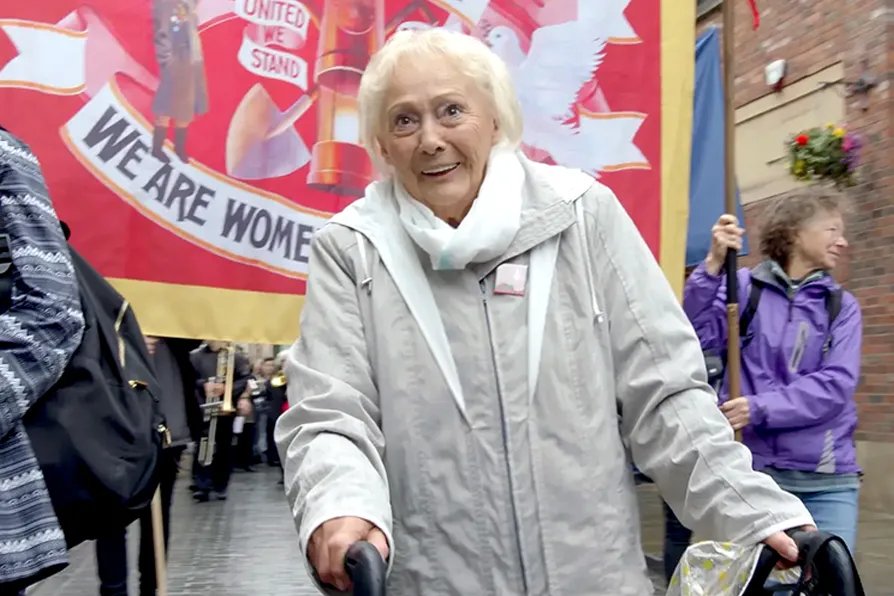JOHN GREEN, MARIA DUARTE and ANGUS REID review Fukushima: A Nuclear Nightmare, Man on the Run, If I Had Legs I’d Kick You, and Cold Storage
MARJORIE MAYO suggests that this inspiring film, about the women toughened by the miners’ strike, be shown throughout the TUC and in community groups

 INDOMITABLE: Betty Cook, a veteran of the miners’ strike, still campaigning in her eighties [Pic: IMDb]
INDOMITABLE: Betty Cook, a veteran of the miners’ strike, still campaigning in her eighties [Pic: IMDb]
Iron Ladies (15)
Directed by Daniel Draper
★★★★★
IRON LADIES sets out to commemorate and to celebrate the achievements of iron-willed women, actively involved in the 1984-85 miners’ strike, and most importantly, the film sets out to inspire younger women for the future. “Forward forever, backwards never.”
Margaret Thatcher was known as the “Iron Lady” in her determination to break trade union power, starting with the miners. But “we were hundreds” one woman reflectes and “we’re still here!”
The film is based on a series of interviews with remarkable women, reflecting on their experiences, some 40 years later, with clips from past struggles for illustration, along with clips from more recent commemorations and activism. The film itself starts with women setting up camp outside the Department of Trade and Industry, preparing to protest about proposals for subsequent pit closures in the 1990s.
Many of the women came from families with histories of class struggle, well aware of the likely implications of the election of a very right-wing Tory government in 1979. Others deepened their political understanding as the 1984-85 strike developed. They came to see that this was class warfare with the police very firmly on the other side, and particularly the Metropolitan Police who are described as “absolute bastards” for their brutality towards women as well as men.
It was, of course, the police who attacked the miners at Orgreave, not the other way round, as officially claimed.
For many of the women, these experiences were profoundly politicising — sometimes through song and poetry as well as through more formal approaches to political education. “It changed my life”; it “made us all very politically aware” as one woman explains.
In addition, a number reflected on their changing awareness of their positions as women. Many became involved in the struggle in practical ways, mirroring traditional women’s roles — to support their husbands and children, organising food parcels and soup kitchens, for example. This wasn’t about burning bras, as one woman explains. But it did raise women’s aspirations of taking control, speaking up and being treated as equals. Subsequently, some women went on to get an education and some to get involved in local politics.
This is an absolutely inspiring film. These were very tough experiences, with no easy answers for contemporary struggles. This is why the film needs to be shown, to promote discussion in trade union organisations and community groups. Morning Star readers will find so much of contemporary relevance here.
Highly recommended.
In cinemas October 10.









